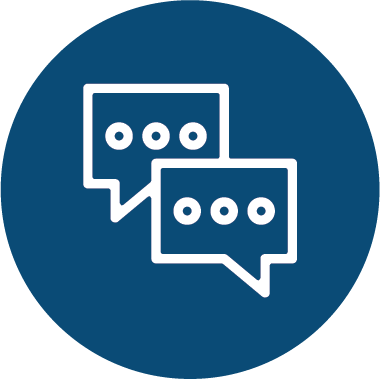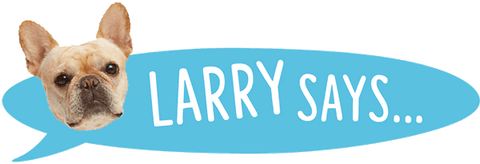Whether you want it to or not, the world is always evolving, and if you don’t learn to change with the times, you may fall into the trap of believing you already know everything you need to. Professional development goals, as well as personal goals, keep us moving forward, attaining new heights, and growing within our careers.
It’s not enough to be content with the status quo. What was once standard practice in your industry won’t always be, and if you want to excel in your field, you’ll need to put effort into both personal and professional development.
Continue reading to learn more about the importance of personal and professional growth, including a list of professional growth examples, how to get started, and how to keep the goals you set.
The Importance of Personal and Professional Growth
Personal and professional growth represents a continued commitment to learning. Your quest for knowledge and skills shouldn't end with school. It’s a lifelong pursuit of betterment that will help you grow as a person and thrive in your career.
Growth can be anything from learning a new hobby to honing your communication skills to better understanding your own strengths and weaknesses. The type of growth you pursue depends on what inspires you, what you currently struggle with, and what you may be missing in order to thrive in your career.

What is Professional Growth?
Professional growth and development focus on aspects of learning that will help you in your career. By pursuing professional growth, you’ll develop brand new skills and ensure your knowledge always remains relevant to your profession and industry. Professional development includes technical skills, interpersonal skills, understanding yourself and those around you, as well as tactical skills and knowledge that are relevant to your current and future employment.
Types of Professional Development
Technical Skills
Advancing your technical skills can help you in just about any work environment. Learning how to use current industry software, how to make coding changes on a website, or how to troubleshoot a WiFi connection are extremely valuable skills in an office environment.
Technology is always advancing and evolving, so this is one skillset you’re bound to be able to improve no matter what your current skill level is.

Communication Skills
Effective communication is what keeps a workplace running smoothly. Trust, productivity, and motivation are all tied around office communication, which is a skill you can improve and fine-tune.
Learning more about your own communication preferences and tendencies can help you identify areas of weakness and why you might not get along with others in your workplace. Everyone has different communication preferences, and this can lead to conflict and misunderstandings at work.
Personality assessments give you a better understanding of your own tendencies to prepare you for communication inside and outside of the workplace. Learn more about the DiSC personality test and how to use Enneagrams in the workplace.
You can also focus your professional growth on becoming a better writer and a more succinct communicator. Consider courses, workshops, or reading materials aimed at improving email writing, answering the phone, running meetings, and public speaking.

Career Advancement
What knowledge, experience, or skills do you need to advance your career? Professional development will help you move forward with your career based on your professional goals. If you hope to get a raise, or to become a manager, or to one day pursue a different career altogether, learn what kind of experience will help you achieve your goals.
Look for training that can help you expand your industry knowledge and give you a competitive edge against others who are vying for the same jobs.

Industry Trends
Industry trends shift and advance as the years pass, which means your previous years of education and training may not be up to date any longer. Set professional development goals that ensure you never fall behind in your industry.
If you plan to advance your career or even keep the same job you’ve always had, you’re going to need to brush up on your knowledge and skills according to the current industry standard.

Joyful Pursuits
Sometimes professional growth is sought out for the pure joy of learning something you’ve always wanted to know. Have you always wanted to learn how to use Photoshop, write in calligraphy, or speak another language?
You never know when these interests could cross over into work life, and just the act of learning something new will make you a more well-rounded individual. The pursuit of learning will keep your brain active, and you’ll be better equipped to learn something new the next time you need to for work.
Professional Development Goals Examples

Technical Development Goals
- Photography and camera skills
- Photo editing and Photoshop
- Web design
- How to code
- How to use new software
- How to make the most of software you already use
- How to manage passwords
- How to optimize your use of Excel
- Computer shortcuts
- Search engine optimization (SEO)

Communication Development Goals
- Networking practice
- Improving email writing
- Improving phone skills
- Improving general writing skills
- Learning about personality types
- Public speaking
- How to run meetings
- How to handle intimidation in a workplace

Professional Development Goals For Work and Careers
- Adaptability training
- Time management
- Industry relevant equipment and software
- Attend industry relevant conferences
- Run a lunch and learn
- Calendar management or bullet journaling
- Seek a mentor in your industry

Professional Development Goals For Managers
- Workplace diversity training
- How to give constructive feedback
- How to run productive meetings
- How to manage a schedule
- How to manage a team
- How to avoid micromanaging
- How to deal with conflict in the workplace
- How to deal with defensiveness in the workplace
- How to run remote team building activities

Personal Development Goals For Fun
- How to speak another language
- How to play an instrument
- How to doodle or sketch
- Making crafts
- Practicing a new hobby
- Giving back to your community
How to Set Professional Development Goals

Consider Your Technical Skills
How are your technical skills compared to others in your workplace? Do you find you often don’t understand tech problems and look to others to solve technical issues?
If you fall on the more tech-savvy side, when was the last time you brushed up on your knowledge? Are you up to date with current industry equipment, software, and the technical requirements of your job?

Assess Your Strengths and Weaknesses
It’s perfectly normal to find certain tasks or problems more difficult than others. When you understand what your weaknesses are, you can focus your professional development goals on improving those weaker areas.
Maybe you have trouble speaking in front of large groups, suffer from phone phobia, or just can't seem to organize your calendar. Whatever it is you struggle with, look for professional development goals that will help you build on your strengths and improve your weaknesses.

What Would Bring the Most to Your Team?
You are part of a larger team, which means you share a set of skills and experience between the overall group. Good professional development goals consider what value you can bring to your team and what it might be missing. How can you add knowledge or skills to areas that might be lacking across your current team?

Set Attainable Goals
It’s nice to fantasize about all of the incredible growth and development you want to accomplish, but that doesn’t do you any good if you don’t stick to your goals. Lofty, unattainable goals only set you up for failure.
When choosing what professional development goals you want to pursue, consider how much time you are able to devote to that goal and whether or not you can commit to it.
How to Keep Professional Growth Goals

Turn Your Goals Into Habits
Forming habits is the most effective way to accomplish your goals. When you form a habit, it becomes ingrained in your brain, which is what makes them so difficult to break. Just think about how hard bad habits, such as smoking, biting your nails, or snacking, are to overcome.
Find ways to turn your professional development goals into habits by breaking them down into daily activities that you can repeat every day. If you’re trying to learn a new skill, dedicate 10-20 minutes of your time every day to improving that skill. If you want to learn more about a subject, set aside time for reading each day. Ensure you repeat the habits you want to form every day, at the same time if possible, until the motions become automatic and ingrained.

Hold Yourself Accountable
How will you ensure you stick to your goals and continue your pursuit of professional growth? Holding yourself accountable will depend on your own values.
What could you put on the line to ensure you keep your goals? StickK helps keep you accountable by allowing you to set a goal along with an accompanying commitment if you don't succeed. For example, you can put $50 on the line to donate to a friend or charity if you fail to meet your goals.
If you work best with positive reinforcement, choose rewards to give yourself after you succeed. It’s important to celebrate success along the way. Break your goals into small milestones with motivating rewards as you accomplish what you set out to.
Use a Professional Growth Progress Tracker
You won’t know if you’re successful unless you track your progress along the way. Habit trackers can help you form long-lasting positive habits. They document your progress, motivate you to keep going, and help you take note of your success.
Use an individual progress tracker to document your successes and failures. This will help you learn where you need to improve, and when it’s time to celebrate success. 🎉
More from Blue Summit Supplies
💡 How to Make Office Friends and Get Along with Coworkers
💡 The Importance of Time Management and How to Optimize Your Time
Do you love professional development as much as we do? Follow our office supplies blog for the latest trends, strategies, productivity tips, and more.
If you have any questions or want to talk to someone about office supplies, send us an email or connect with us on Twitter, Facebook, or Instagram.
 For more informative articles about office supplies, subscribe to our email newsletter!
For more informative articles about office supplies, subscribe to our email newsletter!
Never fear, you won't begin receiving daily sales emails that belong in a spam folder. Instead, we promise a fun weekly roundup of our latest blog posts and great finds from across the web. And if you lose interest, it's always easy to unsubscribe with a single click.










